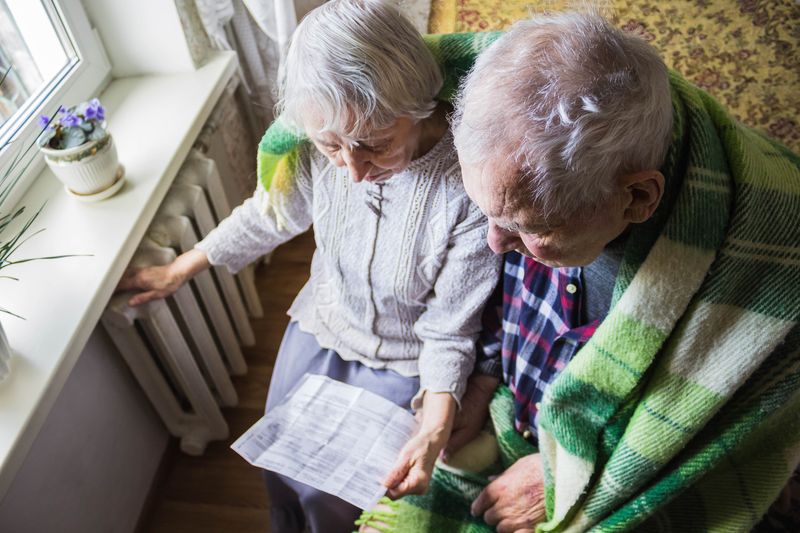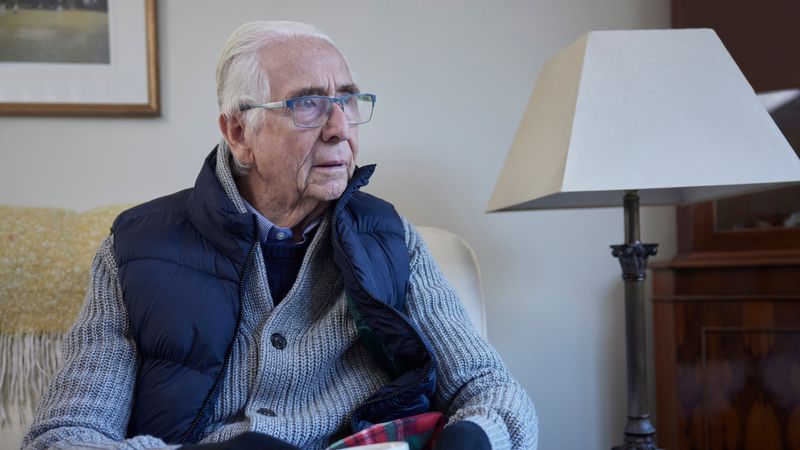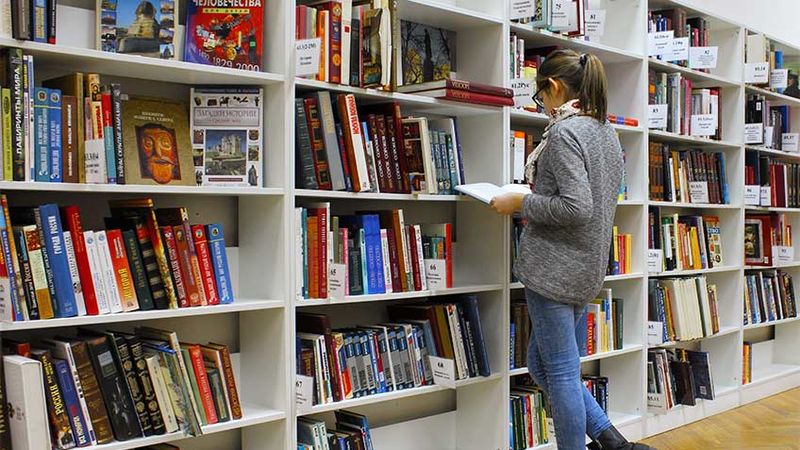Firstly, it helps to understand the problem.
Health risks of cold weather
Lower temperatures put a strain on our bodies as they work harder to stay warm. In the process, our blood pressure rises, the risk of clotting increases, and with it the sometimes delayed risk of heart attack and strokes for up to four weeks after a chilly snap.
Our immune system and lungs don’t work as well in the cold either so we are less able to fight infection - just at the time we’re spending more time indoors which makes it easier for viruses like flu and COVID to spread.
More obviously, snow and ice increase the chance of injury from slips and falls.
The risks of cold weather
While all these factors can affect anyone, vulnerable people are especially at risk of health complications when the barometer drops – even to moderately low temperatures between 8°C -15°C.
‘Vulnerable’ groups include the over-65s, under-5s, mums-to-be and individuals with long-term health conditions like diabetes, asthma or heart disease, or poor mental health.
Inequalities, such as low income and poor housing, can also increase the chance of people living in cold and damp homes – conditions in which mould, which can cause serious respiratory infections, allergies or asthma, can thrive.
Cold weather can also cause depression, impact people’s ability to work and study, and, via unsafe or inappropriate appliances to heat homes, lead to carbon monoxide poisoning.
Unsurprisingly, the figures show winter claims thousands of additional lives every year. It’s why we ask residents to keep checking in on vulnerable family, friends and neighbours during cold weather, urge anyone eligible to get their winter vaccines and also to seek support, including with heating.

“Heating one room to at least 18°C, having hot food and drinks and getting the free seasonal vaccines on offer if eligible can all help protect against illness brought on by the cold”
Kent County Council (KCC) Director of Public Health, Dr Anjan Ghosh, said: “Staying warm and well during cold spells is important for everyone, but particularly for people who are more susceptible to low temperatures.
“Given the sometimes delayed impacts of cold weather on our health, please keep looking out for the vulnerable people in your life, including our older residents, the very young, anyone with heart and respiratory conditions or poor mental health - and follow commonsense advice. If you are struggling, please visit kent.gov to find out what help is available.
“Heating one room to at least 18°C, having hot food and drinks and getting the free seasonal vaccines on offer if eligible can all help protect against illness brought on by the cold, such as heart attacks and strokes – reducing the need for NHS treatment or trip to A&E.”

“Knowing the right place to go can help you get treatment faster and ease pressure on the NHS”
Dan Watkins, Kent County Council’s Cabinet Member for Adult Social Care and Public Health, said: “If you can support others please be a winter friend and keep in touch with vulnerable family, friends and neighbours.
“When cold weather is forecast, see if they need help to get food and medicine and stay safe. If you are worried about someone else’s health, contact your local pharmacist, or your GP or call NHS 111, who will all be able to offer advice.
“If you are unsure about which service to use, visit Stop, Think, Choose. Knowing the right place to go can help you get treatment faster and ease pressure on the NHS.”

“...if you have a problem with issues like damp and mould, faulty heating systems or hot water supply don’t delay, contact your landlord today”
Brian Horton, Chair of the Kent Housing Group, said: “It is important for tenants in both the social rented and private rented sectors to work closely with their landlords to ensure that their homes are warm and safe places during the winter.
“Our advice to all tenants in Kent and Medway is clear – if you have a problem with issues like damp and mould, faulty heating systems or hot water supply don’t delay, contact your landlord today.”
Your guide to #getwinterstrong
Protecting yourself and others
- check your eligibility for a flu or COVID-19 booster online and book an appointment via the NHS National Booking System or NHS app, or at a walk-in clinic or pharmacy near you. See Kent and Medway’s Integrated Care Board website for more guidance
- if you do have flu or COVID symptoms, like coughing and a temperature, UK Health Security Agency (UKHSA) advice is to stay away from others, particularly the vulnerable.
Keep up to date about cold snaps
From 1 November to 30 March, UKHSA and Met Office will issue Cold-Health Alerts. Like Hot-Health Alerts issued during summer 2023, these new warnings signal to health professionals to prepare for extra demand for services. They also let the public know to take extra precautions to keep safe and well. Read more about the different levels of alerts, which are part of the national Adverse Weather and Health Plan.
The browser you are using is not supported or you do not have JavaScript enabled. Update your browser or enable JavaScript to view this video.
Watch some top tips for keeping warm in cold weather. Read transcript.
Keep your home safe and warm
- try to heat rooms you spend a lot of time in, such as the living room or bedroom, to at least 18°C and block off drafts with draft excluder around doors
- keep your bedroom window/s closed at night
- have a carbon monoxide alarm (EN 50291 compliant) fitted
- contact your water and power suppliers to see if you can be on the Priority Services Register, a free support service for vulnerable residents
- if you are elderly, disabled and live alone, and need help putting your rubbish or recycling bins out, contact your local council to request an assisted collection. Find out your local council on GOV.UK
- if you have mould or damp at home, and own your home find out what is causing mould or damp and how to address it. If you rent, contact your landlord. New guidance outlines what private and social rented landlords should do to respond to damp and mould and take preventative action.
- If you rent and your heating stops working contact your landlord.
Stay well
- regular hot meals and drinks can help keep your body warm
- try not to sit still for more than an hour or so. If you find it difficult to move about to get the blood pumping, even stretching your arms and legs can help you warm up
- wear several layers of thinner clothing – with each layer trapping in warm air this will keep you more comfortable than a single thick layer
- if you have visitors, help stop the spread of germs by ventilating the room for a few minutes before and after they arrive; you might be more comfortable leaving the window open during their visit, if it’s not too cold.
Go outside
- check the forecast and get up-to-date traffic information on the Kent Traffic Information website to help plan your trip
- in severe weather such as snow and ice, do not travel unless necessary
- wear shoes with good grip to avoid slips and falls
- try to make sure there is enough food and medicine at home to reduce the need to go out into the cold. Order repeat prescriptions in plenty of time.

Visit kent.gov and search 'energy bill' for advice on meeting the cost of heating your home
Get medical help
- in an emergency call 999, but avoid using the blue-light services and A&E if you don’t need to
- if you are in any doubt about what service to use, visit Stop, Think, Choose or call NHS111 so you get the right treatment and download the NHS app to access a range of services from your phone or tablet
- find details for your nearest pharmacy by searching online.
Seek financial support
- if you are struggling financially, and paying your energy bill is a concern, visit kent.gov to find out what help is available
- different people will be facing different sorts of challenges, but Kent Together is here to help you find the support that's right for you
- longer term improvements to homes can be expensive. Find out more about eligibility for support through ‘Help to Heat’.
Be a winter friend
- if you can support others, keep in touch with vulnerable family, friends and neighbours
- when cold weather is forecast, see if they need help to get food and medicine
- if you are worried about someone else’s health, contact your local pharmacist, your GP or NHS 111, who will all be able to offer advice.
What you can do next




